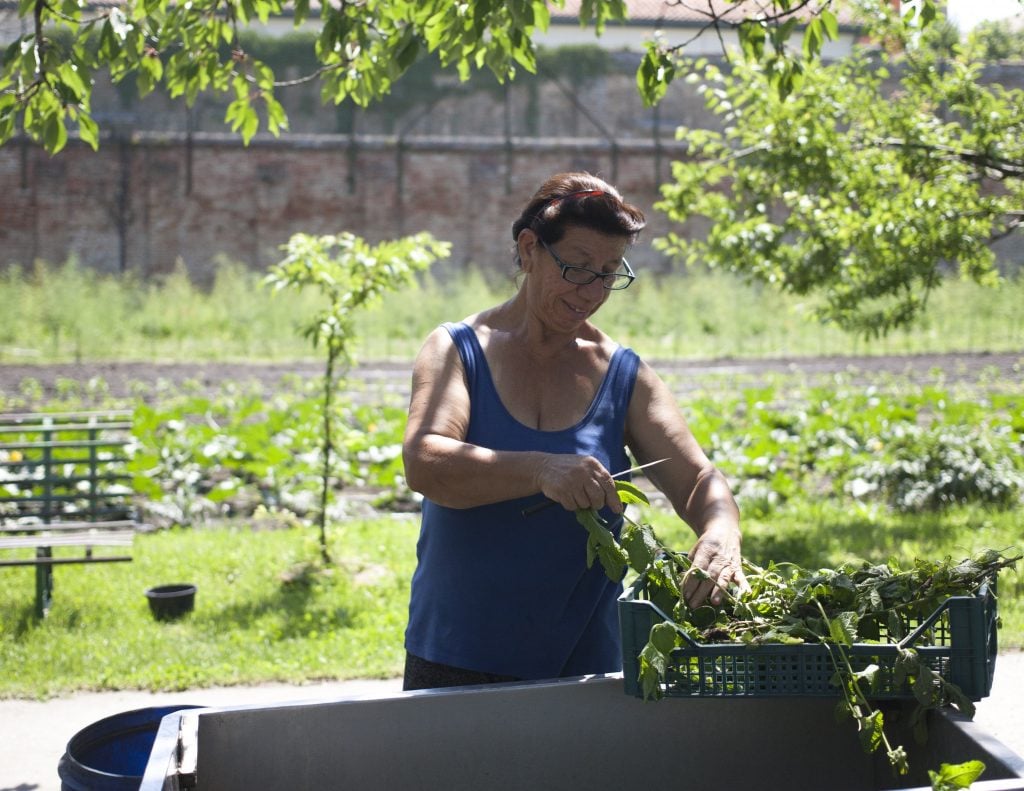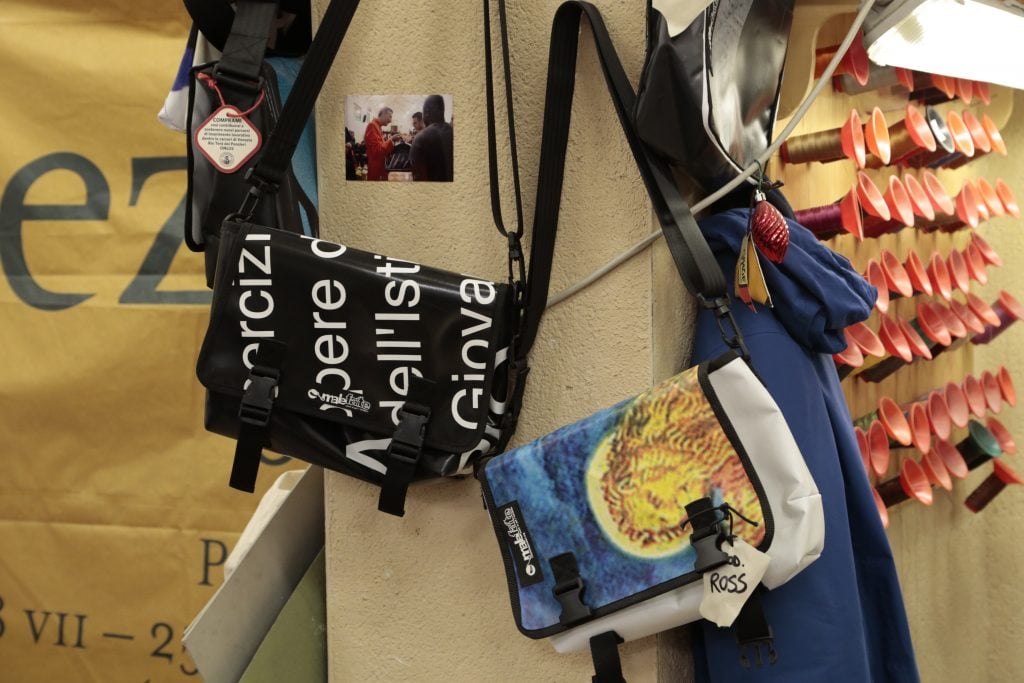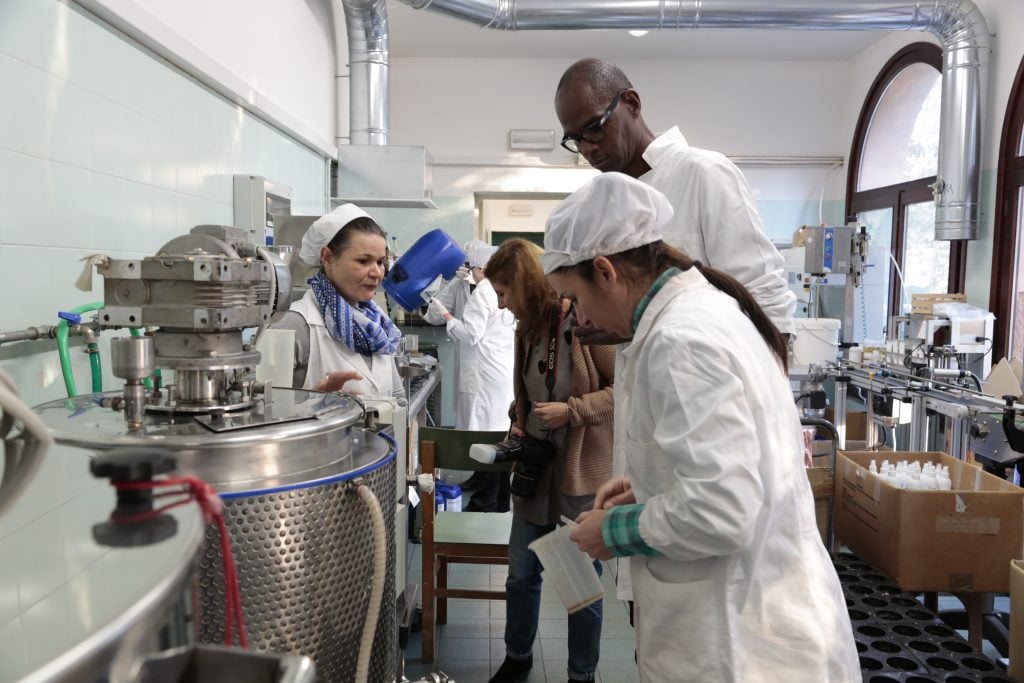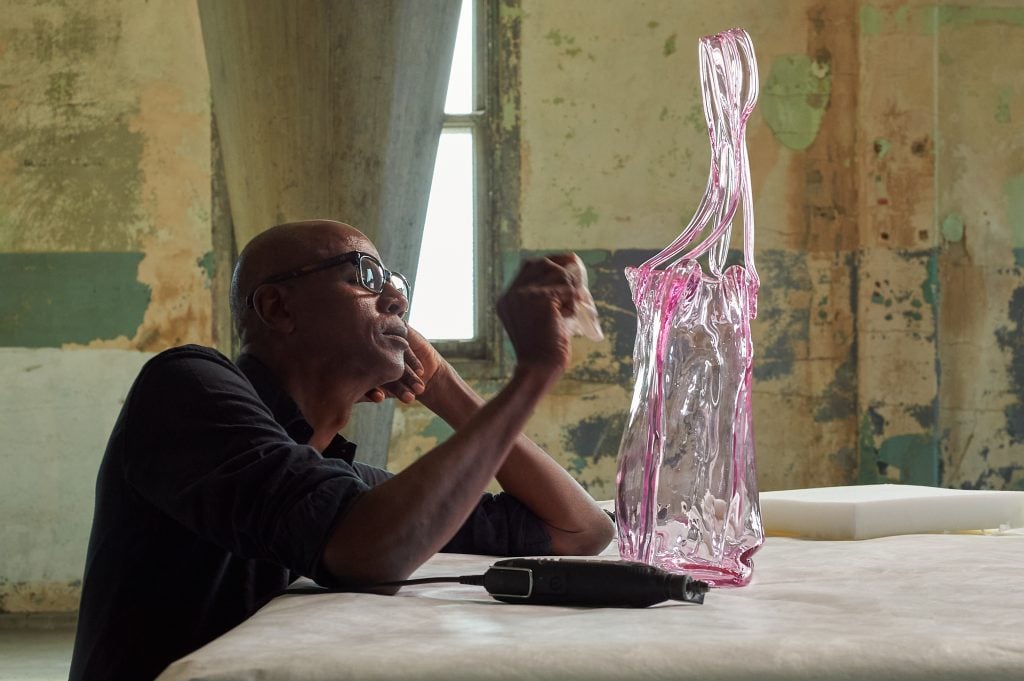Art World
Ford Foundation Backs Venice Nonprofit Supporting Employment in Prisons
The U.S. artist Mark Bradford has been working with Rio Terà dei Pensieri since 2017.

The U.S. artist Mark Bradford has been working with Rio Terà dei Pensieri since 2017.

Naomi Rea

A nonprofit organization working in two prisons in Venice, Italy, has just received a $100,000 commitment from the Ford Foundation in the U.S.
The Rio Terà dei Pensieri is a project that creates employment opportunities for incarcerated people in the city’s Casa Circondariale Santa Maria Maggiore men’s prison, and the women’s prison, Casa di Reclusione Femminile della Giudecca.
The announcement coincides with the opening of the 2024 Venice Biennale titled “Foreigners Everywhere,” a central theme of which is elevating the voices of the marginalized and disenfranchised. There are several projects drawing attention to the carceral justice system in Italy, including the national pavilion of the Vatican City State, which will be situated inside the Giudecca women’s prison.
Rio Terà dei Pensieri has been operating since 1994 with a goal of enriching time in prison through art, literature, and crucially, by providing work opportunities.

Products and materials in the bag manufacturing laboratory at the men’ s prison, Casa Circondariale Santa Maria Maggiore, Venice, Italy. Photo: Carlos Avendano, Agata Gravante, and
Damian Turner.
According to Liri Longo, a longtime staff member and former president of the group, the biggest issues facing incarcerated people in Italy are access to jobs and housing. Organizations like hers have also had to rely more on private funding against the depletion of public support.
There is a growing sense that Giorgia Meloni’s government has made another key issue, prison overcrowding, worse. “This is an issue that we had years ago and for a good time numbers were decreasing—now they are increasing again,” Longo said over the phone. “For the moment they haven’t made any specific new laws regarding prisons, but the feeling is that they are applying every law with the strictest interpretation: They think that the security of society is made with strength and not education. We think the opposite.”
Darren Walker, president of the Ford Foundation, said that he learned of Rio Terà dei Pensieri’s activities through the U.S. artist Mark Bradford, who represented the United States at the Biennale in 2017. As a way to engage with the city of Venice, Bradford began working with the organization on a project called Process Collettivo, a commitment to raise awareness and establish a forum through which members of the cooperative can sell products they have made as part of the program, such as silkscreen prints on bags, soaps and natural cosmetics. Proceeds from the sales go towards other projects providing work in prisons. The project also provides jobs for those recently released to help them access vital public services and employment.

Mark Bradford with members of the Rio Terà dei Pensieri cooperative working in the cosmetics lab at the women’s prison, Casa di Reclusione Femminile della Giudecca, Venice, Italy. Photo: Carlos Avendano, Agata Gravante, and Damian Turner during one of Bradford ’ s visits to the prisons in 2017.
“We decided to support the project for two reasons,” Walker told me on the phone from Venice. “One, Mark was passionate about it and we have supported the work of Art + Practice, Mark’s nonprofit in L.A, and secondly the Ford Foundation has worked on issues of support of incarcerated people for many years. It’s very consistent with our work in the U.S., and it is about the idea that every person, including people who are incarcerated, should have the opportunity to live with dignity, and to be prepared to succeed when they return to their community after their period of incarceration.”
It’s a rare example of the Ford Foundation funding a project in Europe, as it has primarily been focused on opportunities in the Global South. The Ford Foundation is a sponsor of the U.S. pavilion in Venice. In recent years, it has also funded the landmark “Black Model” exhibition at the Musée d’Orsay in Paris, and “Entangled Pasts” which is currently on view at London’s Royal Academy.
“When there is something very special and a rare opportunity to elevate an issue of art and justice we have looked favorably on those those opportunities,” Walker said. “There are things that transcend geography. Issues of power, of who has opportunity and who doesn’t. People who have traditionally been poor, their disadvantage has been compounded. Poor women are often first in a society to be disadvantaged, to be discriminated against, and other people from disadvantaged backgrounds who aren’t provided with opportunity often find themselves most likely to be incarcerated.”

Mark Bradford working on his Borsa edition for Process Collettivo. ©Mark Bradford. Courtesy the artist and Hauser & Wirth. Photo: Keith Lubow.
To mark the end of the eight-year partnership, Bradford is publishing a book about the project with his gallery Hauser and Wirth’s publishing arm and will release a limited-edition artwork as an additional fundraiser. The piece, released in an edition of 30 and priced at $35,000 each, is a pink Murano glass sculpture of a tote bag with tally marks etched into it as an acknowledgement of the temporary nature of incarceration.
Longo expressed her gratitude for both the Ford Foundation and Bradford. “The funding gives us the opportunity to keep Process Collettivo going and to achieve more goals on our way to expanding the activities we offer in prison, the training, the workshops for prisoners both in the prison and outside.”
When Bradford first presented the project in 2017, he said “When you think of Venice, you do not think of a women’s prison.” Perhaps, this Biennale, things will be different.